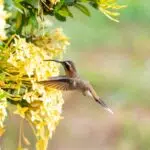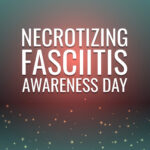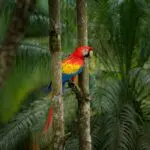Garden Wildlife Week, running from May 31 to June 6 is a holiday week in the United Kingdom. The week aims to raise awareness about garden wildlife. Historically speaking, humans have tended to separate our civilization from wildlife in numerous ways, including legally, morally, and socially. However, some animals have adapted to suburban environments. Some of these animals include domesticated cats, dogs, mice, squirrels, and rats, among others. In certain religions, some animals are considered to be sacred, and in modern times, activists have begun to protest against wildlife exploitation due to concerns for the natural environment.
History of Garden Wildlife Week
Some urban wildlife, such as house mice, have evolved to be synanthropic and throughout history, have become entirely dependent on human habitats. A testament to this is the wide range of synanthropic species of animals that have grown so much that they are unable to survive extreme weather, such as experienced in the winter season, without the shelter provided by human settlements. Animals that inhabit urban environments have different morphology, physiology, and behavior as compared to animals that inhabit more rural areas. Phenotypic development in wildlife offspring can be influenced by hormone-mediated maternal effects. For example, the deposition of androgens into their eggs by female birds tends to affect many different aspects of the development and phenotype of that bird’s offspring. Environmental factors capable of contributing to these developments include nest predation risk, breeding density, food abundance, and parasite prevalence.
In a study comparing antibody and maternal hormone concentrations in eggs between an urban population and a forest population of European blackbirds, clear differences were found in yolk androgen concentrations between both populations. Different types of urban areas support different kinds of wildlife. A general feature of bird species that adapt well to urban environments is the fact that they tend to possess bigger brains, perhaps allowing them to be more behaviorally adaptable to the more volatile and foreign urban environment.
Garden Wildlife Week timeline
The first wildlife garden is created in the Netherlands.
The National Wildlife Federation is created.
The first-ever National Wildlife Week takes place.
The Garden Wildlife Movement is established.
Garden Wildlife Week FAQs
What is Garden Wildlife Week?
Garden Wildlife Week, from June 6 to June 12, is a British holiday week dedicated to raising awareness about garden wildlife.
Is gardening for wildlife dangerous?
Gardening for wildlife is not entirely dangerous, especially if and when it is done right.
Where is Garden Wildlife Week celebrated?
The Garden Wildlife Week is celebrated in the United Kingdom.
How to Observe Garden Wildlife Week
Tailor your garden to accommodate some wildlife
You can touch up your garden in such a way as to accommodate some garden wildlife in celebration of Garden Wildlife Week. Include some things you know the critters like, and watch your garden flourish.
Do some research about garden wildlife
A lot of research is being done regarding the biological factors affecting the adaptability of wildlife to urban living. Do some reading about it too!
Join the conversation online
Share everything you know about garden wildlife online using the hashtag #GardenWildlifeWeek. Spread awareness about this important week.
5 Interesting Facts About Garden Wildlife
Butterflies taste and smell with their feet
Butterflies depend on their feet to taste and smell.
Parsley purportedly cures migraines
Parsley has been said to cure migraines.
The gas plant emits flammable gas
The plant known as the ‘gas plant’ actually emits flammable gas!
Pumpkin flowers are edible
The flowers on a pumpkin plant are edible.
Bluebell flower juice can produce glue
The juice from a Bluebell flower was once used to make glue.
Why Garden Wildlife Week is Important
It is ecologically beneficial
Wildlife gardening is ecologically beneficial to the environment. We love it for this!
It allows wildlife to move easily
Wildlife gardening allows for easy wildlife migration in urban areas. See what you can do this week to contribute!
It allows wildlife populations to connect
Wildlife gardening helps wildlife populations connect better. Read up on the different populations that live in your area and how they interact with each other.
Garden Wildlife Week dates
| Year | Date | Day |
|---|---|---|
| 2026 | May 31–June 6 | Sunday–Saturday |
| 2027 | May 31–June 6 | Monday–Sunday |
| 2028 | May 31–June 6 | Wednesday–Tuesday |
| 2029 | May 31–June 6 | Thursday–Wednesday |
| 2030 | May 31–June 6 | Friday–Thursday |

















